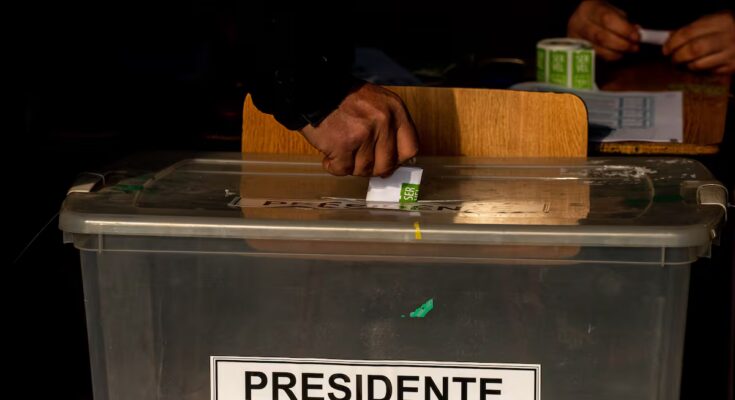First round. This November 16th, presidential and parliamentary elections will be held in Chile which will renew the entire Chamber of Deputies (155) and half of the Senate (25 out of 50). As for the presidential election, it is very likely – practically a certainty – that none of the candidates will get the necessary support (50% plus one of the votes) to directly win the presidency this Sunday for the 2026-2030 term. There will therefore be a second round, scheduled for December 14th.
Only four with real options. There are eight candidates who will be on the ballot, but only four have real options. From left to right, they are: Jeannette Jara (communist militant, sole candidate of the governing party of President Gabriel Boric), Evelyn Matthei (of the UDI, candidate of the traditional right grouped in Chile Vamos, plus the centrist forces Amarillos and Democrats), José Antonio Kast (leader of the Republican Party, far right conservative) and Johannes Kaiser (of the National Libertarian Party, far right). An unknown is the position reached by Franco Parisi, populist candidate, who in this third attempt to reach La Moneda has reached, according to polls, around 10%, so he would be in fifth place. If he beat one of the right-wing candidates and came fourth, it would be a surprise and good news for the People’s Party he leads.
Who goes to the ballot. Polls, at least before the ban on revealing them went into effect on November 1, show Jara coming first and Kast second, so both would be in the second round in a month. Therefore, if this scenario did not occur on Sunday evening, it would be surprising. Will Kaiser be able to beat Kast? It can’t be completely ruled out – he’s only four points lower on average, according to Electoral Radar – but it doesn’t seem likely. In any case it is an open scenario. And can Kast beat Jara and come first? In politics nothing is impossible, but even this scenario does not seem probable, given that Jara has the support of a large part of the Chilean left and at least of President Boric’s supporters, who hover around a stable 30%.
The relative importance of finishing first. It is important to obtain the first majority, even if this fact has no necessary correlation with the second round. Everything suggests that Jara will get the highest percentage of votes this 16th, which does not mean that he has a better chance of beating Kast in the run-off, at least according to what the polls showed before the ban. This Sunday it is expected that there will be between five and nine points between Jara and Kast – between first and second – so outside of this range it will be considered surprising.
If Kast doesn’t pass. In the unlikely scenario in which Kast does not go to the runoff, but the libertarian Kaiser goes, the transfer of votes from the right is not entirely assured considering the second round. This means that not all of the right will vote for Kaiser. For Jara this seems the best solution: to have the libertarian and not the republican in power on December 14th. But even so, against Kaiser, Jara would not win, at least according to the polls.
The dispute for third and fourth place. The dispute for third and fourth place is open. A few weeks ago it seemed like a given that Matthei would come in third, but this picture was called into question with the Kaiser surge that the polls were starting to show before November 1st. If Kaiser and not Matthei remained in third place, it would be a serious blow for Chile Vamos, of the traditional right. Not to mention that Matthei finished fifth and was overtaken by Parisi. Does he have the chance to go to the run-off? Very few, even if his supporters appeal for last minute moderate votes who do not lean towards a communist militant or an ultra like Kast.
Second round. There is no opinion poll showing a victory for Jara over any of the right-wing candidates in the second round. An open question is whether this scenario can be reversed in four weeks, until December 14. Even the left admits that the challenge is very complex.
Parliament. Of utmost importance will be the parliamentary elections. According to Unholster’s projections, the right would reach a majority in both the Chamber of Deputies (85 out of 155) and the Senate (26 out of 50), something that has not happened in this country for 20 years. According to this analysis, the main increase will concern the pact between Kast’s Republicans and Kaiser’s libertarians, which would go from 15 to 29 deputies and from no senators in 2017 – when the same constituencies were elected as today – to two. Meanwhile, the report by LarraínVial, a financial consultancy company, assures that “if the right had been united in the parliamentary elections (…) it would have had 90 of the 155 parliamentarians and 28 or 29 of the 50 senators, i.e. the quorum of four sevenths necessary to change the Constitution of the Chamber and the Senate”.
Pole. The total register reaches 15.7 million voters. It is estimated that, as in the recent elections – the exit plebiscites from the two constitutional processes and the 2024 municipal elections – this time too 85% will be reached, i.e. around 13 million of the 15.7 million will actually vote. This is therefore five million more than those who participated in the 2021 elections, where around eight million people went to the polls with a participation of around 50%.



